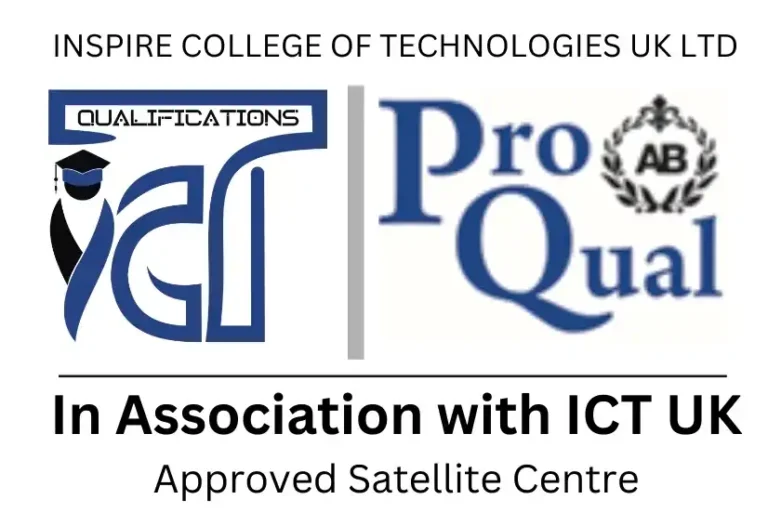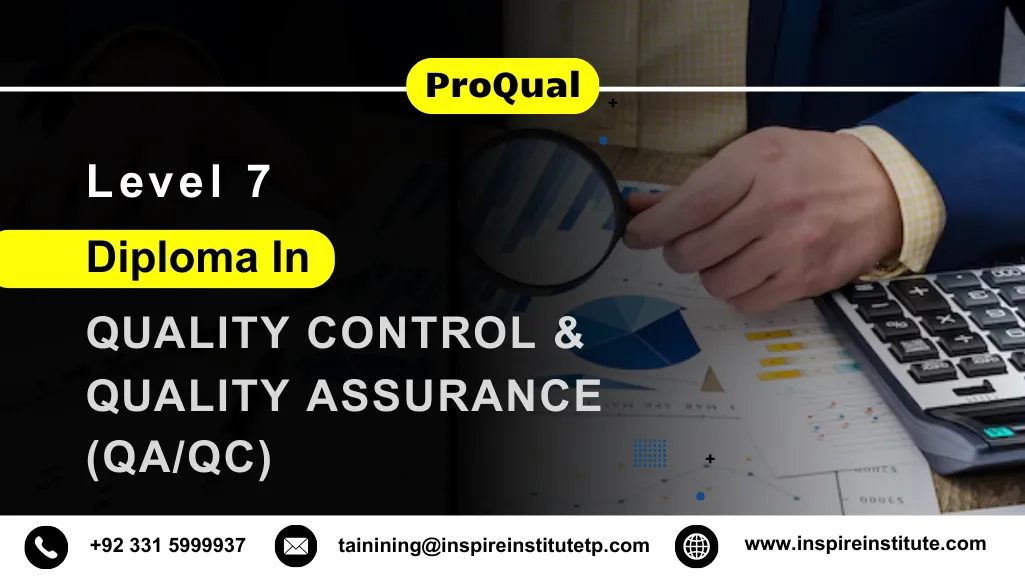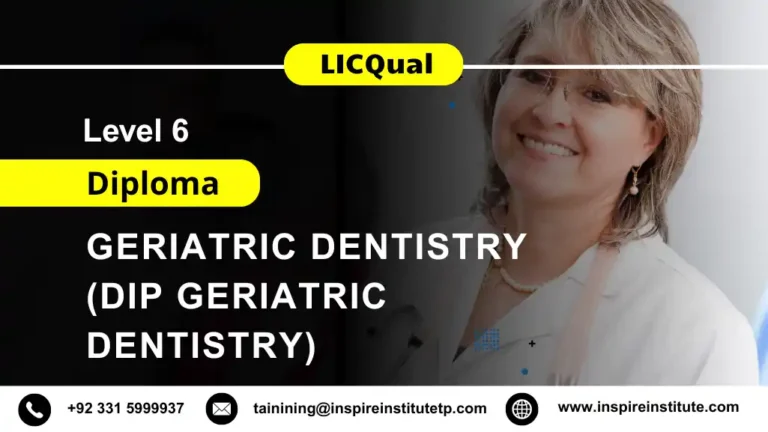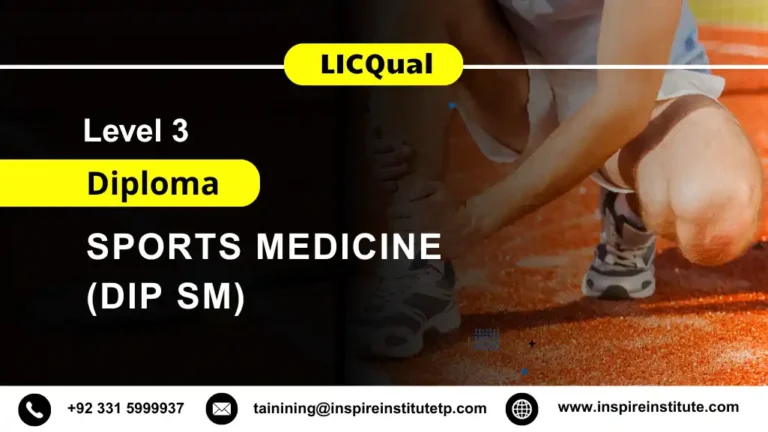ProQual Level 7 Diploma in Quality Control & Quality Assurance (QA/QC)
The ProQual Level 7 Diploma in Quality Control & Quality Assurance (QA/QC) is a highly regarded qualification designed for professionals seeking to elevate their expertise in quality management. This advanced diploma offers in-depth knowledge and practical skills in quality control, quality assurance, and continuous improvement processes across industries. Ideal for those aiming for senior roles in quality management, the course covers essential topics like regulatory compliance, risk management, and process optimization. By earning this accredited diploma, you’ll gain the credentials necessary to drive quality initiatives and ensure high standards in your organization.
Why Choose this Qualification
Why Choose the ProQual Level 7 Diploma in Quality Control & Quality Assurance (QA/QC);
- Industry Recognition: This diploma is widely respected and recognized by employers in various industries.
- Advanced Skills: Gain in-depth knowledge of quality management, risk assessment, and regulatory compliance.
- Career Growth: Open doors to senior roles like Quality Manager, QA/QC Director, and Compliance Manager.
- Designed for Experienced Professionals: Build on your existing skills with advanced strategies in quality control and assurance.
- Flexible Study Options: Study at your own pace, fitting learning around your work and personal life.
- Improved Problem-Solving: Develop strong decision-making and problem-solving skills for leadership roles.
- Better Business Performance: Learn how to improve processes, reduce waste, and increase customer satisfaction.
Course Overview
Awarding Body: ProQual
Course Level: Level 7
Average Completion Time:
4 to 12 Months
Study Units : 10
Evidence & Assignment Based

Inspire Institute of Technologies is Approved Satellite Centre of ProQual
Qualification Structure
To achieve the ProQual Level 7 Diploma in Quality Control & Quality Assurance (QA/QC): Candidates must complete Ten mandatory units:
Who Should Take This Course
Who Should Take the ProQual Level 7 Diploma in Quality Control & Quality Assurance (QA/QC)
- Experienced Quality Professionals: If you have prior experience in quality control, quality assurance, or similar fields and want to enhance your skills and knowledge, this diploma is ideal for you.
- Managers and Supervisors: Those in senior or supervisory roles responsible for quality management or overseeing quality systems in an organization will benefit from this qualification.
- Aspiring Quality Leaders: If you aim to take on leadership positions such as Quality Manager, QA/QC Director, or Compliance Officer, this course will provide the credentials and expertise needed.
- Professionals in Regulated Industries: If you work in highly regulated sectors such as manufacturing, construction, healthcare, or pharmaceuticals, this qualification will help you ensure compliance with industry standards and improve processes.
- Individuals Focused on Career Advancement: If you’re looking to advance your career in quality management, the ProQual Level 7 Diploma will give you the competitive edge needed for higher-paying roles.
Course Benefits
Course Benefits of theProQual Level 7 Diploma in Quality Control & Quality Assurance (QA/QC):
- Industry-Recognized Qualification: The diploma is widely acknowledged and respected by employers globally, enhancing your professional credibility in the quality control and assurance sector.
- Career Advancement: Gain the qualifications needed for senior roles such as Quality Manager, QA/QC Director, and Compliance Officer. This diploma opens doors to better job opportunities and higher salaries.
- In-Depth Knowledge & Practical Skills: Learn advanced quality management techniques, regulatory compliance, risk management, and process optimization. You’ll gain both theoretical knowledge and practical skills that can be applied immediately to improve your organization’s quality systems.
- Improved Decision-Making & Leadership: Develop key leadership and decision-making skills necessary to manage and improve quality systems within your organization, leading to better business performance.
- Compliance & Risk Management Expertise: Become proficient in managing risk, ensuring compliance with industry regulations, and reducing errors in production processes. This is crucial for sectors like manufacturing, healthcare, and pharmaceuticals.
- Flexibility: The course offers flexible learning options, allowing you to study at your own pace while continuing to work, making it ideal for busy professionals.
- Enhanced Business Performance: Learn how to implement quality systems and process improvements that lead to reduced waste, lower costs, and increased customer satisfaction.
- Networking Opportunities: Gain access to a network of like-minded professionals and industry experts, helping you stay updated with the latest trends and best practices in QA/QC.
Eligibility Criteria
Eligibility Criteria for the ProQual Level 3 Certificate in Teaching, Training, and Assessment:
Minimum Age: Candidates must be at least 21 years old to enroll in the course.
Relevant Experience: Applicants should have significant relevant experience in quality control, quality assurance, or a related field.
Current Role: It is recommended that candidates are currently employed in a role that involves overseeing or managing quality systems, processes, or compliance.
Basic Literacy and Numeracy: A basic level of literacy and numeracy is required. You must be able to read and understand course materials, write reports and assessments, and interpret data related to quality management practices.
Commitment to the Profession: Candidates should demonstrate a commitment to the profession of quality control and assurance, with a focus on continuous improvement, ensuring compliance with standards, and maintaining high quality across operations.
No Formal Qualification Required: While there are no specific formal academic qualifications required for entry into this course, it is expected that applicants have practical experience and knowledge in quality management.
The Qualification Process
Here is a step-by-step guide to help you understand the entire journey from pre-registration to certification:
1. Initial Assessment and Enrollment
- Application and Eligibility Check: To begin the process, you will need to complete an application form. The training provider will review your eligibility based on your work experience, current role, and relevant qualifications.
- Enrollment: Once your eligibility is confirmed, you will be enrolled in the program. You will receive information on the course structure, key requirements, and resources available to support your learning.
2. Course Structure and Content
- Unit-Based Learning: The qualification is made up of several units that focus on core topics in quality control, quality assurance, regulatory compliance, risk management, and continuous improvement. You will be required to complete all units and demonstrate your proficiency in these areas.
- Work-Based Learning: As a work-based qualification, the ProQual Level 7 Diploma emphasizes the application of learning in real-world scenarios. You will need to collect evidence of your competence by demonstrating how you have implemented quality systems and processes in your workplace.
3. Ongoing Support and Assessment
- Dedicated Assessor: Throughout the course, you will be assigned a qualified assessor who will guide you through the process. The assessor will provide ongoing support, review your progress, and offer feedback on your work.
- Assessments: You will be assessed via a combination of methods, including:
- Portfolio of Evidence: Collecting evidence from your workplace to show how you apply quality management techniques, compliance measures, and process improvements.
- Reflective Accounts: Writing reflective reports that describe your learning journey and how you’ve applied new skills in your role.
- Professional Discussions: Engaging in discussions with your assessor to demonstrate your understanding of key concepts and practices in quality control and assurance.
- Workplace Observation: In some cases, your assessor may conduct a direct observation of your work to ensure you meet the required standards.
4. Completion of All Required Units
- To achieve the ProQual Level 7 Diploma, you must successfully complete all required units in the qualification. Each unit is designed to test your ability to manage and improve quality assurance and control systems within your workplace.
5. Final Review and Verification
- After completing all units and submitting your portfolio of evidence, your assessor will review your work to ensure it meets the required standards. This may involve revising some areas of your portfolio based on feedback.
- Quality Verification: Your assessor’s evaluation will be verified by an internal quality assurer to ensure consistency and fairness in the assessment process.
6. Awarding of the Qualification
- Once you have successfully completed all units and met the assessment criteria, the qualification will be awarded. You will receive the ProQual Level 7 Diploma in Quality Control & Quality Assurance (QA/QC), a widely recognized certification in the field of quality management.
7. Post-Qualification Support
After earning the diploma, you will be better equipped to take on senior roles in quality management. Many learners also benefit from continued support from the training provider, including access to professional development opportunities, industry networking events, and further qualifications.







